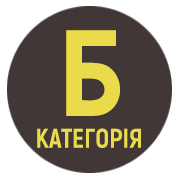ВЕРБАЛІЗАЦІЯ КОНЦЕПТУ МІСЯЦЬ У ХУДОЖНІХ ТЕКСТАХ Ю. М. МУШКЕТИКА
DOI:
https://doi.org/10.32782/folium/2025.6.10Ключові слова:
концепт, астронім, метафора, мовосвіт, Ю. М. МушкетикАнотація
У статті здійснено комплексний аналіз концепту МІСЯЦЬ у художньому мовосвіті Ю. М. Мушкетика як одного з ключових концептів-астронімів, що набуває символічної багатовимірності та естетичної ваги. Визначено ядерні смислові складники концепту на підставі словникових дефініцій, окреслено приядерну зону та периферійні нашарування, що виявляються в інтерпретації місяця як небесного світила, як живої істоти, зооморфного або антропоморфного персонажа, символу часу, маркера національної ідентичності та навіть матеріального предмета.Особливу увагу приділено поетико-мовним засобам реалізації концепту – метафорам, порівнянням, персоніфікаціям, епітетам, що забезпечують формування багатозначного лінгвоментального образу, наповненого як емоційно-експресивними, так і культурно-символічними смислами.У роботі виявлено, що концепт МІСЯЦЬ у творах Ю. М. Мушкетика функціонує не лише як декоративний елемент пейзажу, а як семантичний центр, за допомогою якого автор моделює художній часопростір, посилює настрій сцени або підкреслює душевний стан героїв. У роботі акцентовано на здатності письменника трансформувати традиційні уявлення про небесне світило відповідно до комунікативно-прагматичних завдань художнього тексту, його ідейно-естетичних настанов та загальної інтенції твору.Показано, як концепт МІСЯЦЬ набуває ознак персонажа, спостерігача, співучасника або індикатора емоційної напруги, внутрішньої драми, морального вибору. Зазначено, що за допомогою цього концепту майстер слова створює своєрідну художню космогонію, у якій відображено філософське осмислення буття, протистояння світла й темряви, добра й зла, боротьби, пам’яті, самотності та гармонії. У такий спосіб концепт постає не лише естетичною, а й аксіологічною категорією індивідуального мовного світу митця, стаючи одним із ключових маркерів його світоглядної парадигми.
Посилання
Голобородько, К. Ю. (2010). Ідіостиль Олек- сандра Олеся: лінгвокогнітивна інтерпретація (Монографія). Харків: Харківське історико-філологічне товариство. 528 с.
Маленко, О. О. (2004). Лінгвопоетика Всесвіту в українському художньому тексті: еволюція смислів (Монографія). Харків: Основа. 184 с.
Мушкетик, Ю. М. (2019a). Плацдарм. Жорстоке милосердя. Харків: Фоліо. 409 с.
Мушкетик, Ю. М. (2019b). Дорога в безвість. Харків: Фоліо. 156 с.
Мушкетик, Ю. М. (2019c). Іду на Ви. Харків: Фоліо. 188 с.
Мушкетик, Ю. М. (2012a). На брата брат. Харків: Фоліо. 317 с.
Мушкетик, Ю. М. (2012b). Останній гетьман. Погоня. Харків: Фоліо. 374 с.
Мушкетик, Ю. М. (2014). Час звіра. Київ: Ярославів Вал. 2014. 456 с.
Мушкетик, Ю. М. (1987). Твори в 5 т. (Т. 1: Смерть Сократа. Суд над Сенекою. Гайдамаки. Жовтий цвіт кульбаби). Київ: Дніпро. 608 с.
Мушкетик, Ю. М. (2006а). Яса (Т. 1, Розд. 1–17). Харків: Фоліо. 414 с.
Мушкетик, Ю. М. (2006b). Яса (Т. 2, Розд. 18–33). Харків: Фоліо. 415 с.
Пустовіт, Л. О. (2009). Словник української поезії другої половини ХХ століття: семантико-функціональний аспект (Монографія; Упоряд. В. І. Матюша, П. А. Матюша, І. Л. Михно). Київ: Рідна мова. 243 с.
Словник української мови: в 11 т. (1972). (Т. 4: І-М). Голов. ред. І. К. Білодід. Київ: Наукова думка. 840 с.
Ставицька, Л. О. (2009). Про термін ідіолект. Українська мова, 4, 3–17.











